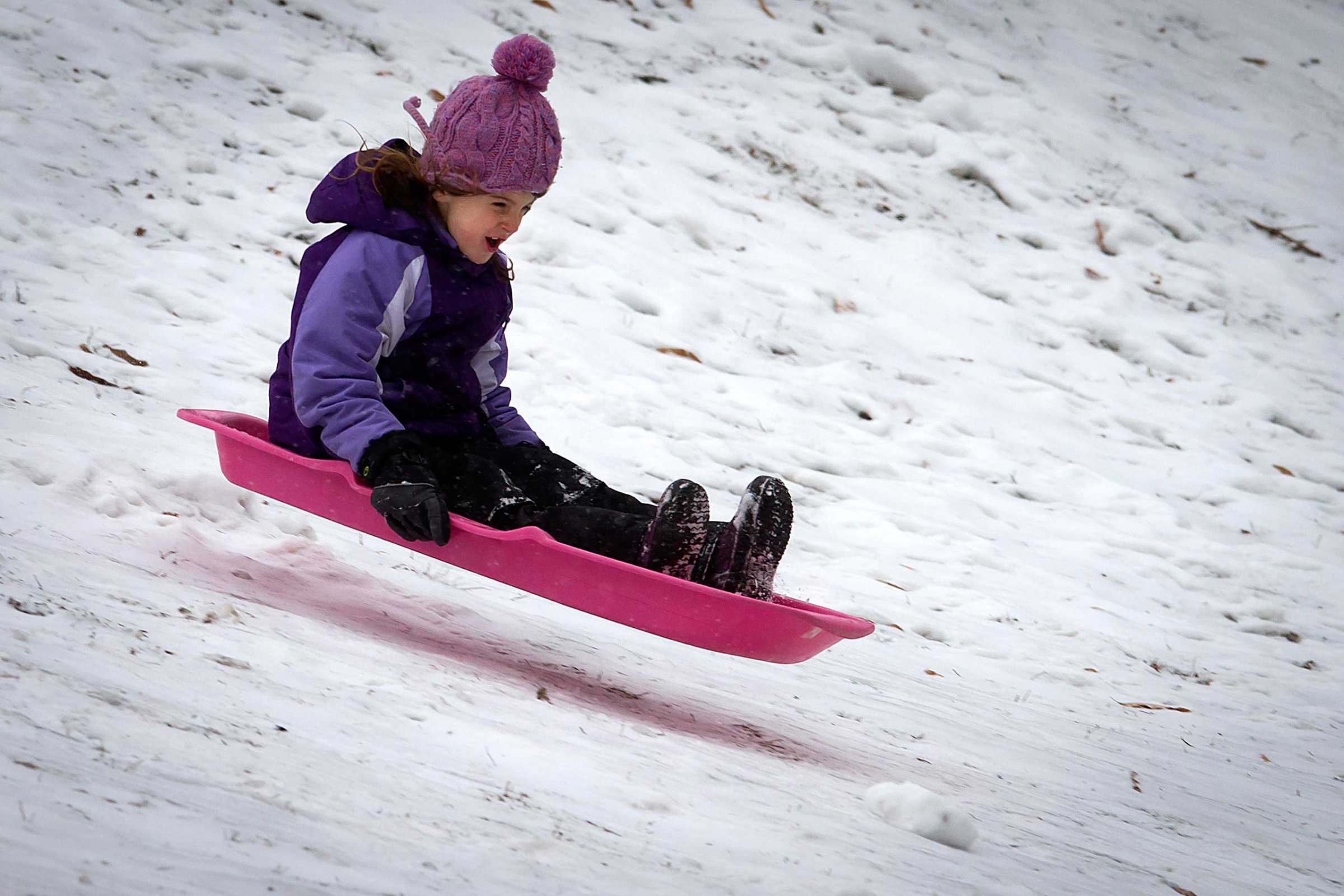
Sarah Miller writes for The New Yorker, The Hairpin and other publications
My father was the superintendent of a school in a town where it snowed a lot. He was the one with the authority to cancel school, a decision making process which began at dawn. Whenever I woke up in darkness to a ringing phone, I knew before I opened my eyes that outside, in the glow of the streetlight, I would see snow falling.
My slightly older brother and I would then convene on the stairs outside my parent’s bedroom, straining to hear my father’s conversation. Phrases like “pretty icy out there” or “really coming down” were Good, and phrases like “No big deal,” “turning to flurries,” and “Hmm. Pittsfield’s staying open?” were Bad. The dim light, the dead quiet of the whitening landscape and the nail-biting tension gave each of these occasions a Polanski-esque intensity.
If school was cancelled, hooray. Cue snow forts, cocoa, and a Three’s Company marathon. But if we went to school, our day was doubly ruined, first, by being there at all, and then, by everyone complaining to us that our father had not cancelled it.
Obviously the kids were the worst. “Tell your dad he’s a moron!” was a favored comment. But kids were kids — they want what they want and that’s what they understand. What bothered me much more was comments like “My mother said to tell you to tell your father that he is stupid.” Even worse was adults actually complaining to our faces. There was one teacher who would bitch about my father’s not cancelling school all day, and would even call out to us in the hallways “Hey, when did your dad go blind?” Some of our friend’s parents would yap similar things at us into their rear view mirrors as they drove us home from scouts or sports practices.
Forget about the inappropriateness of all of this or the fact that despite the years and an intense meditation practice I still hate all these people. What bothered me the most was people’s confidence in their opinions about the decision despite having so little understanding of what went into it.
East Coast Readies Itself for Up to 3 Feet of Snow
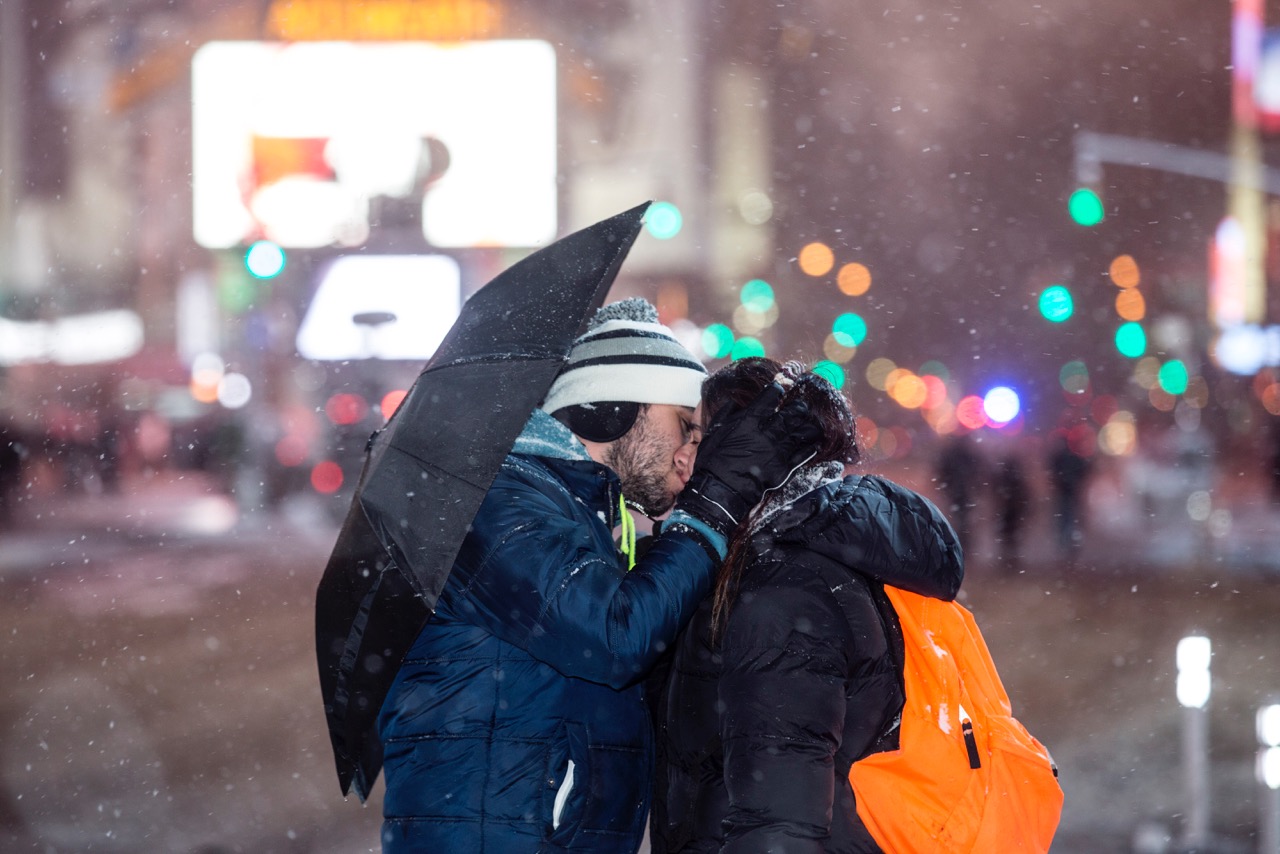
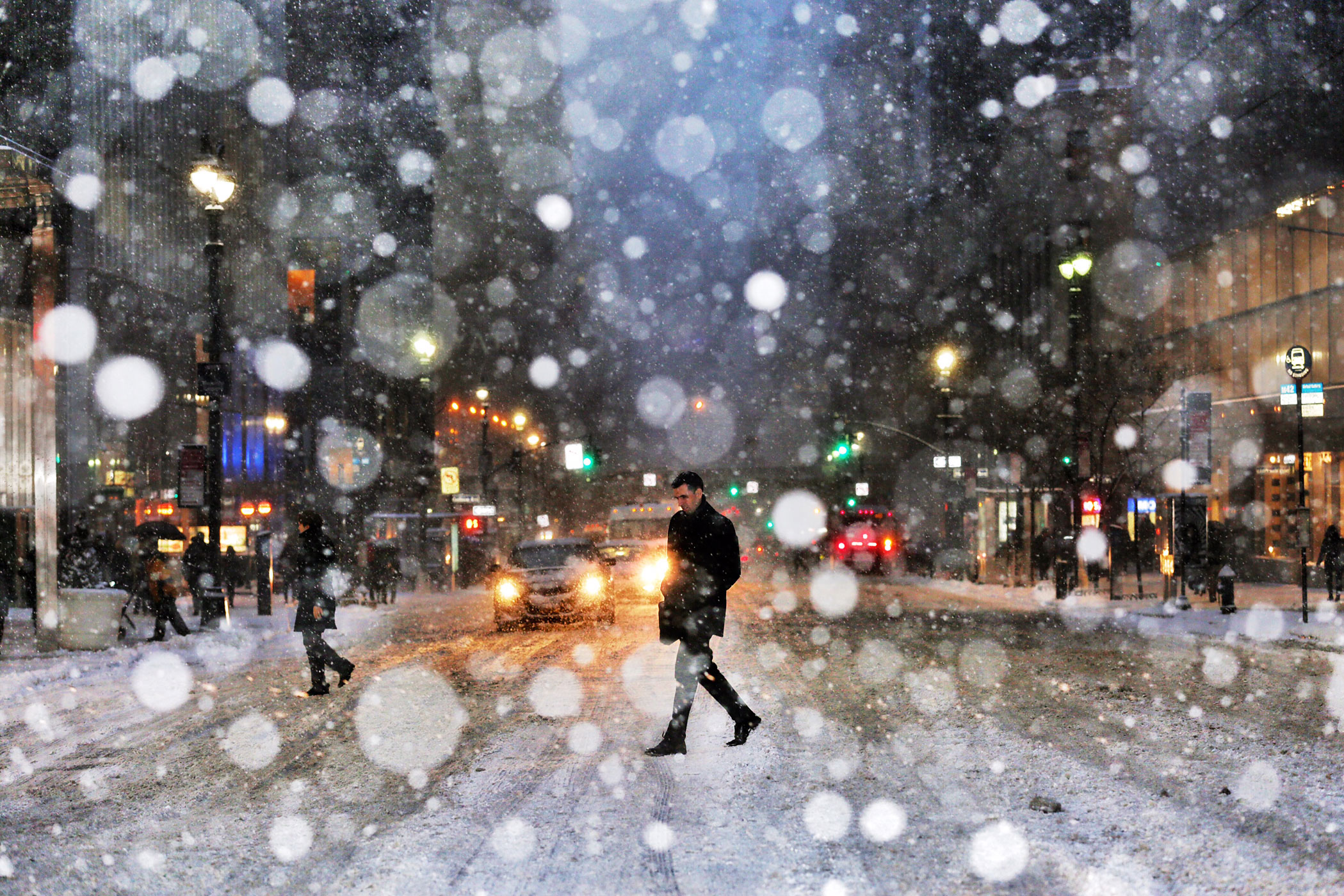
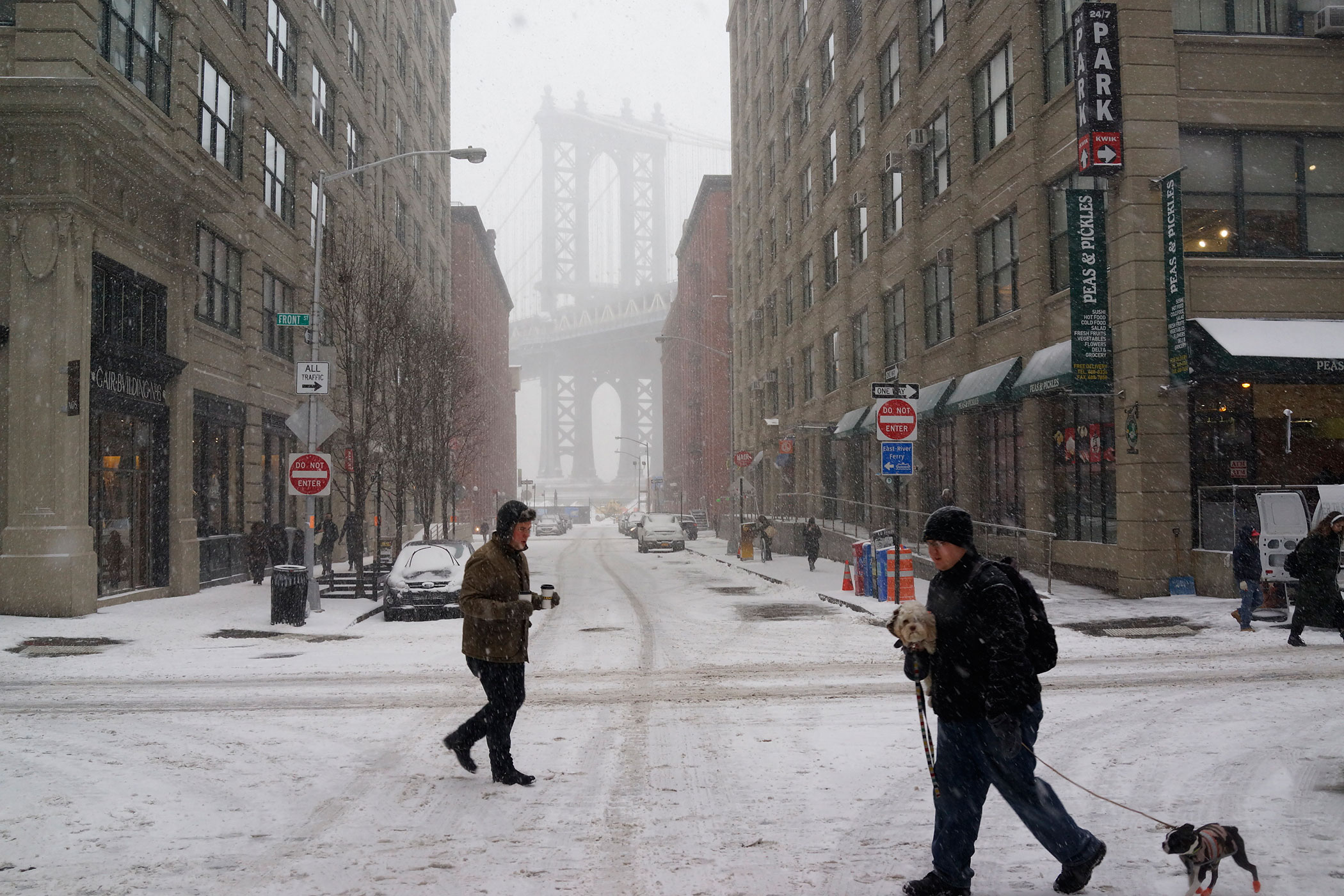
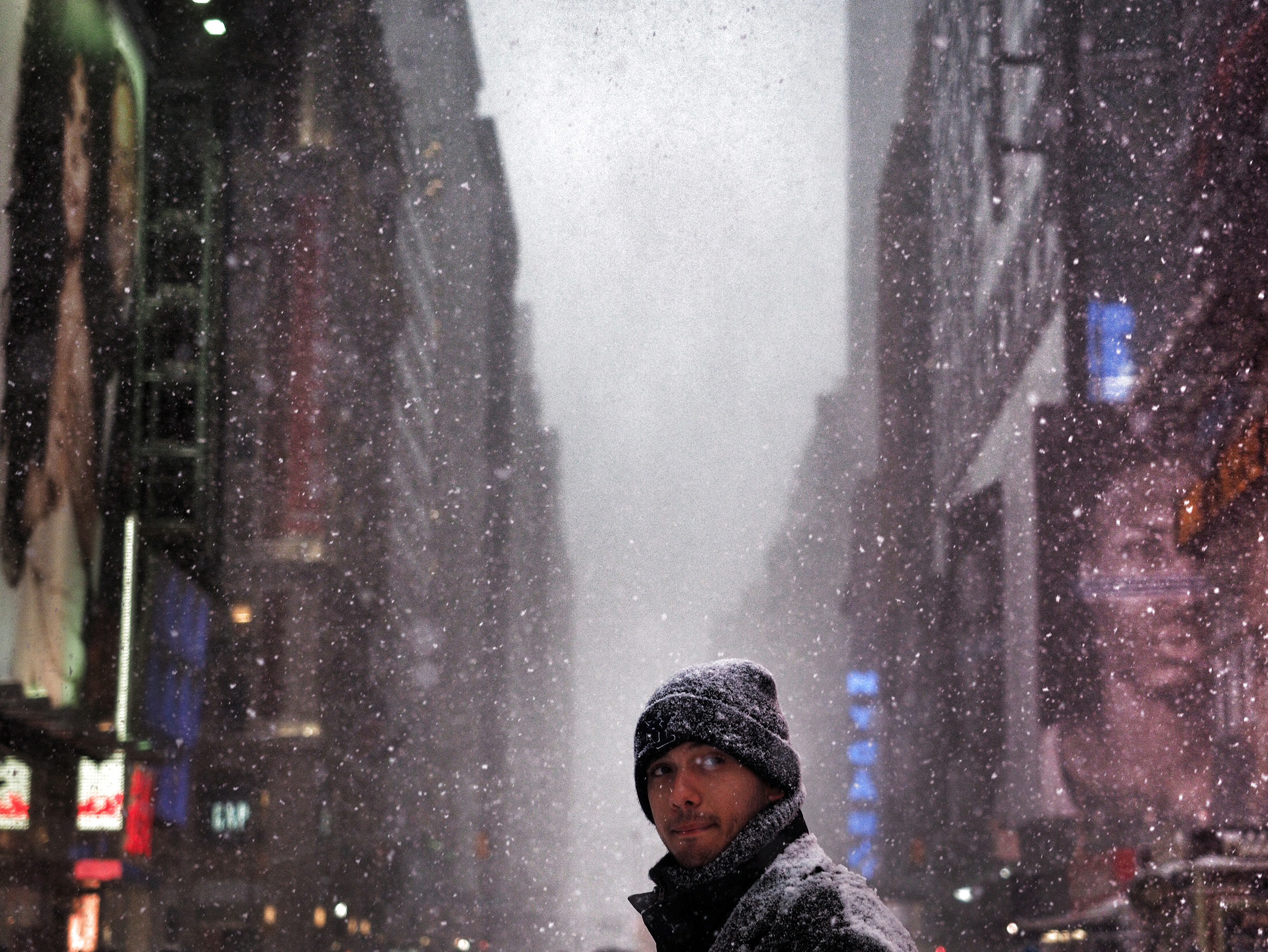
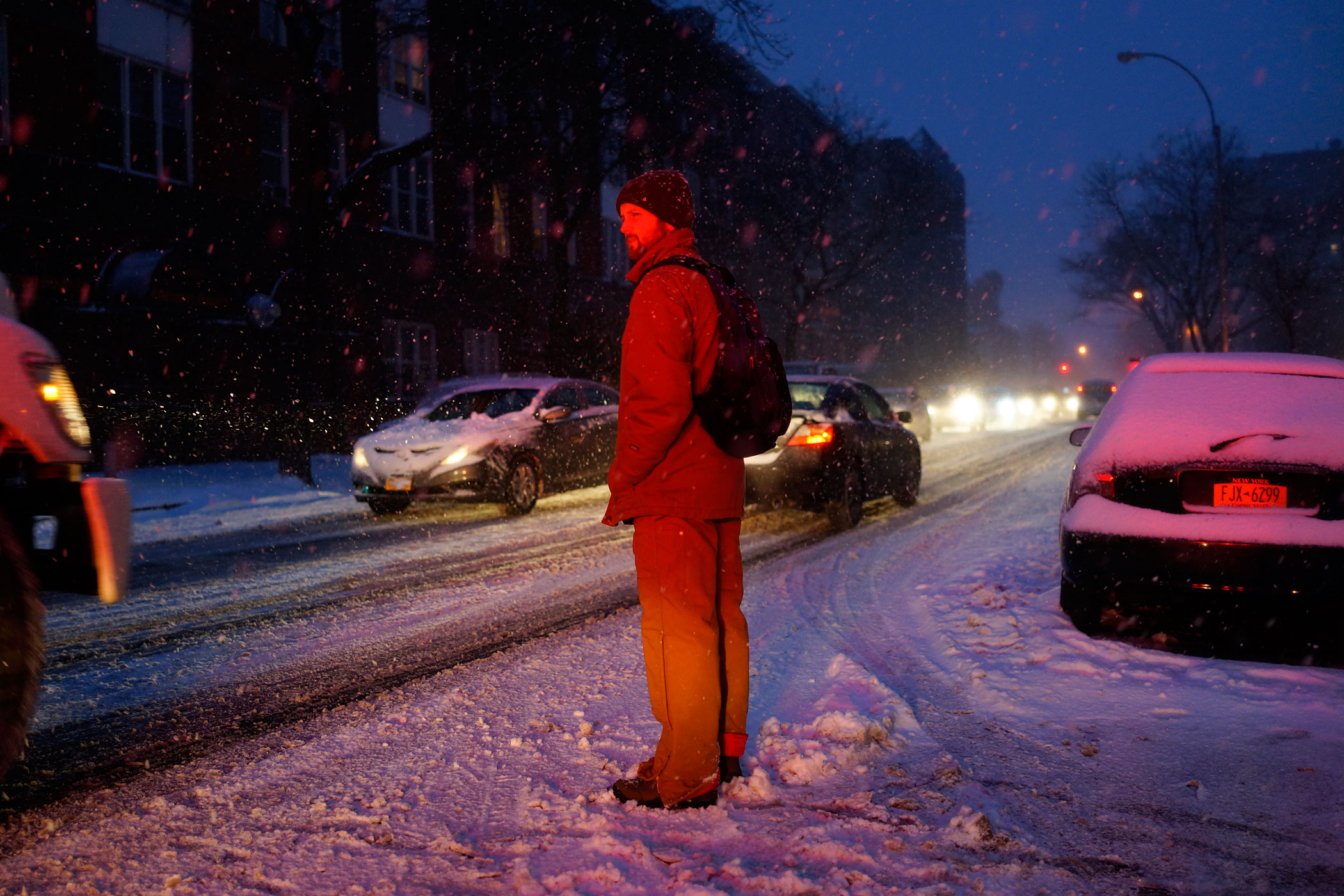
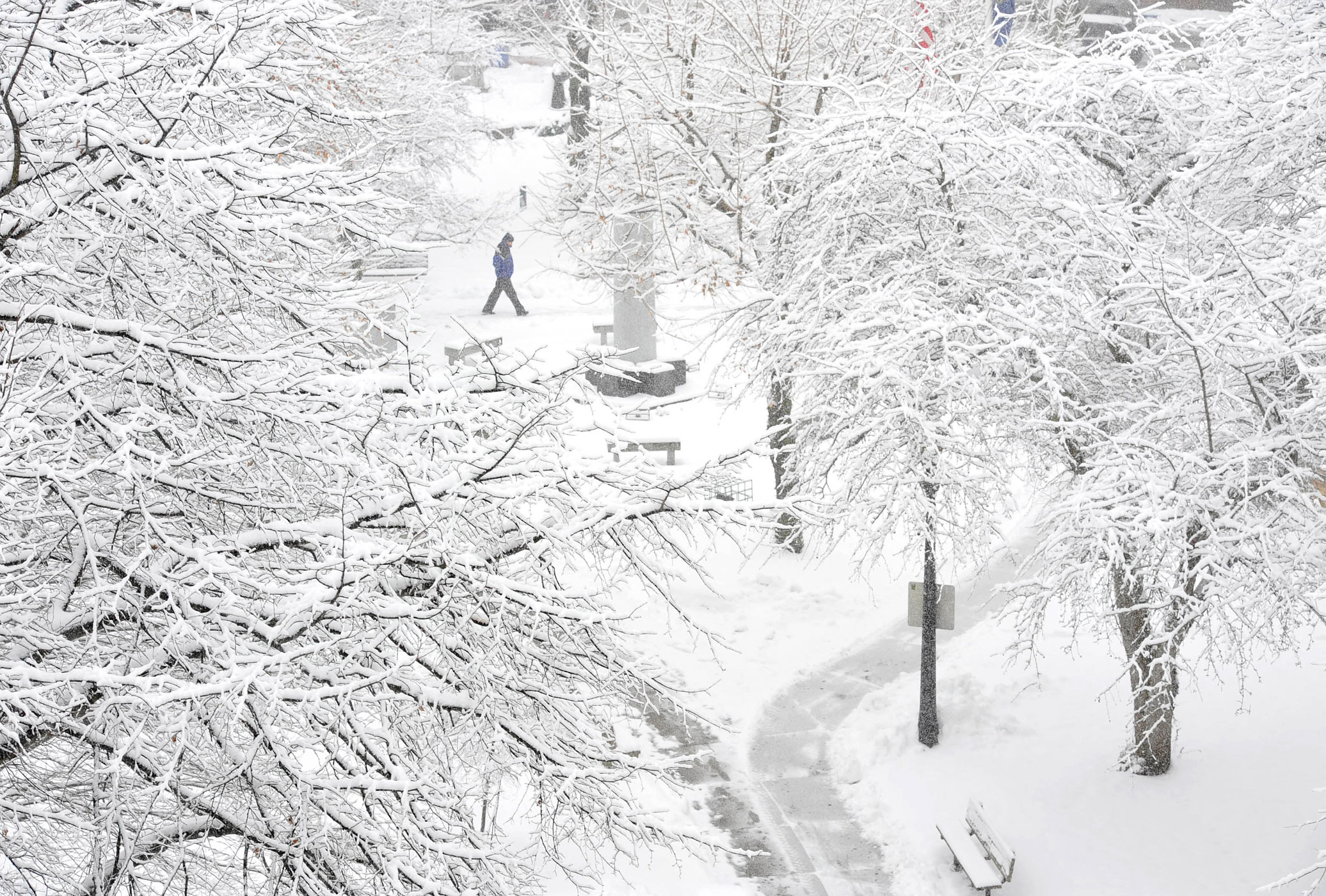
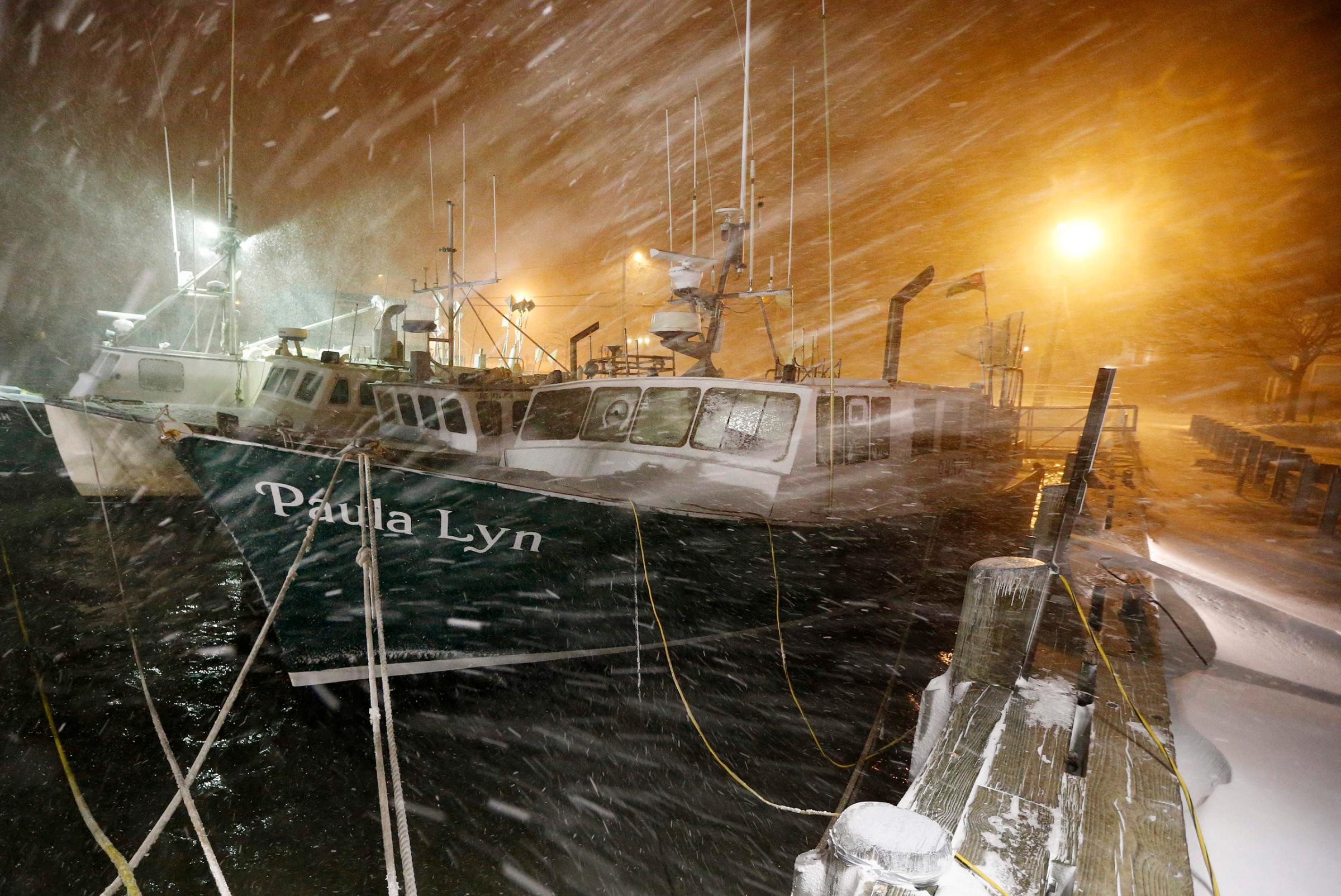
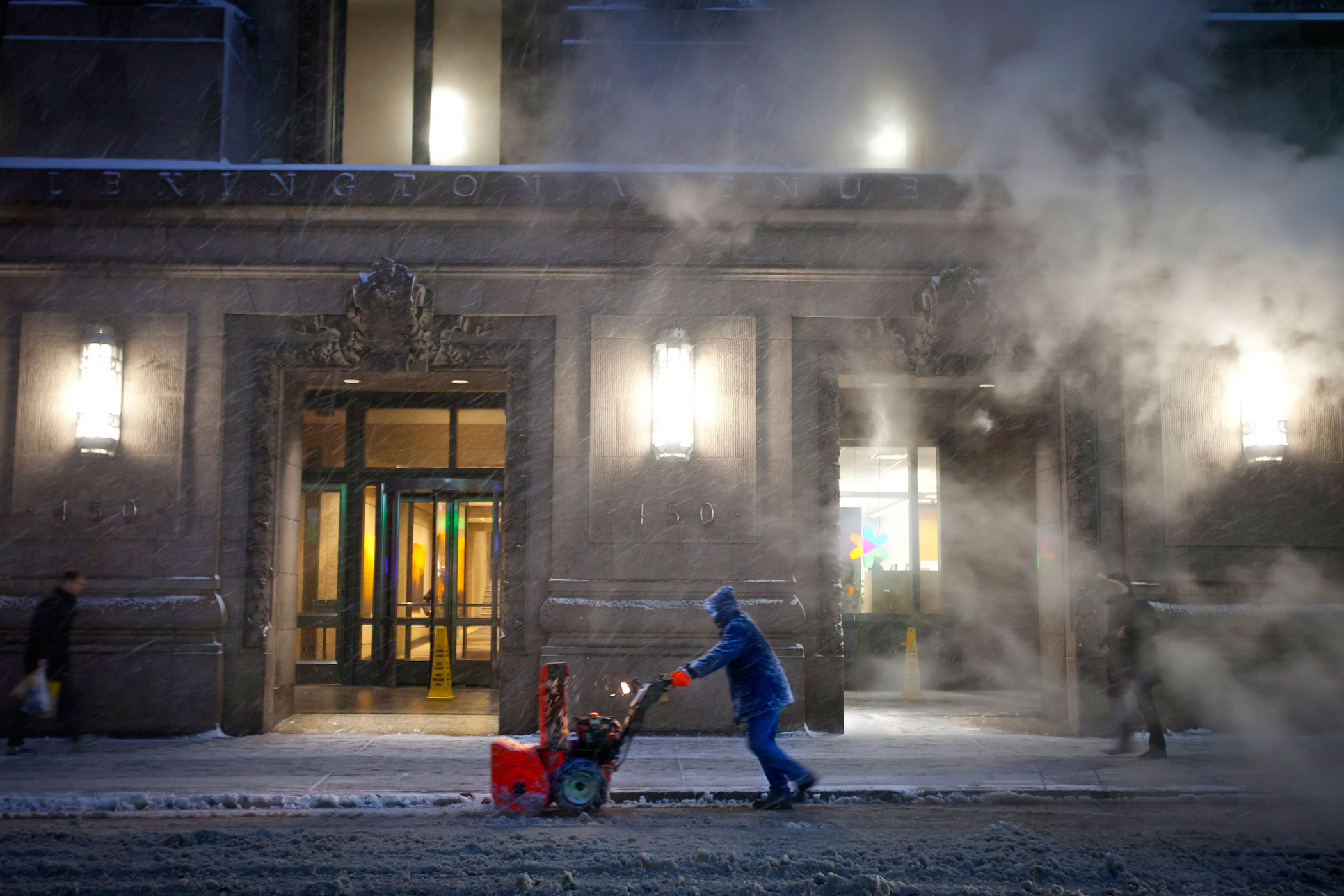
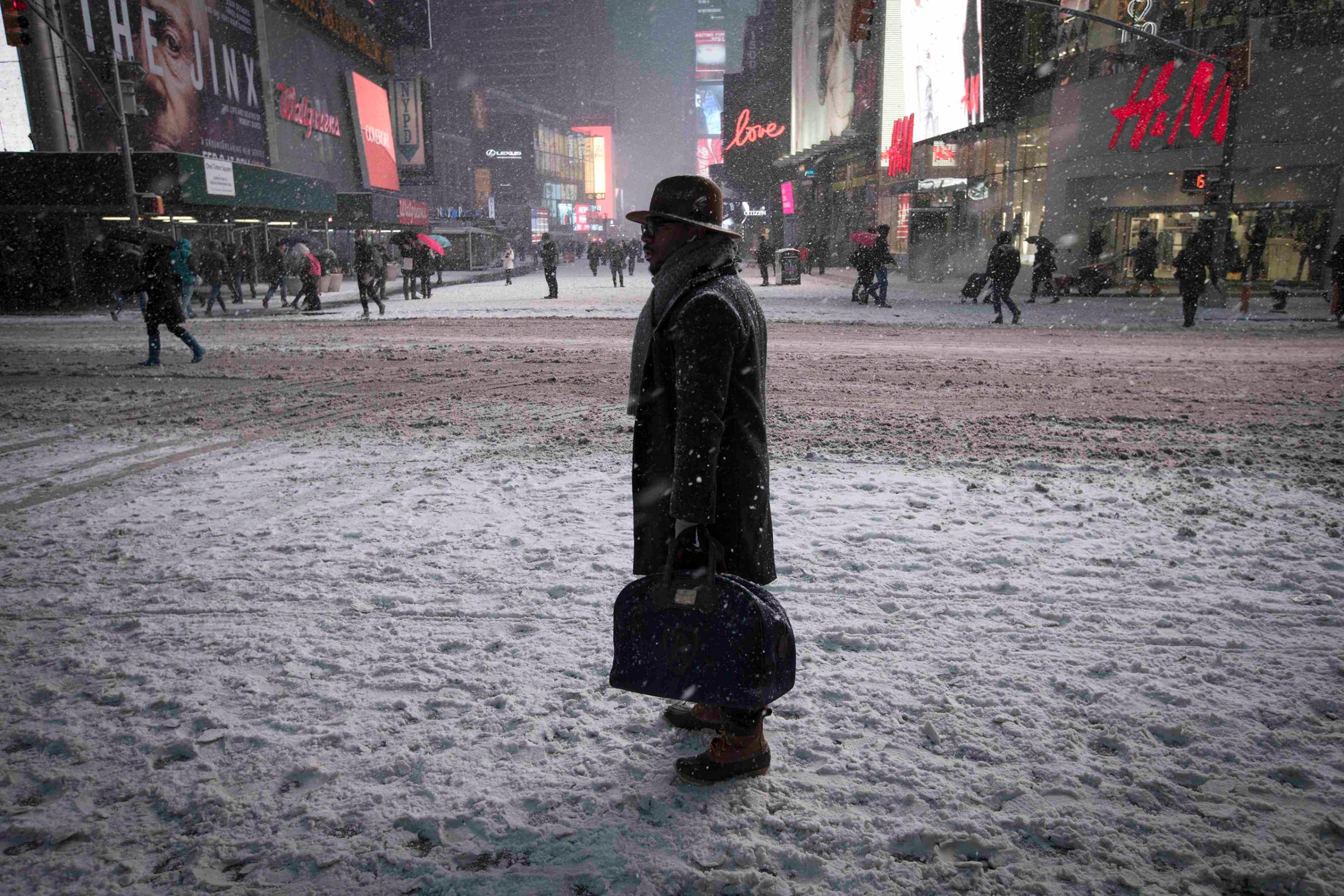
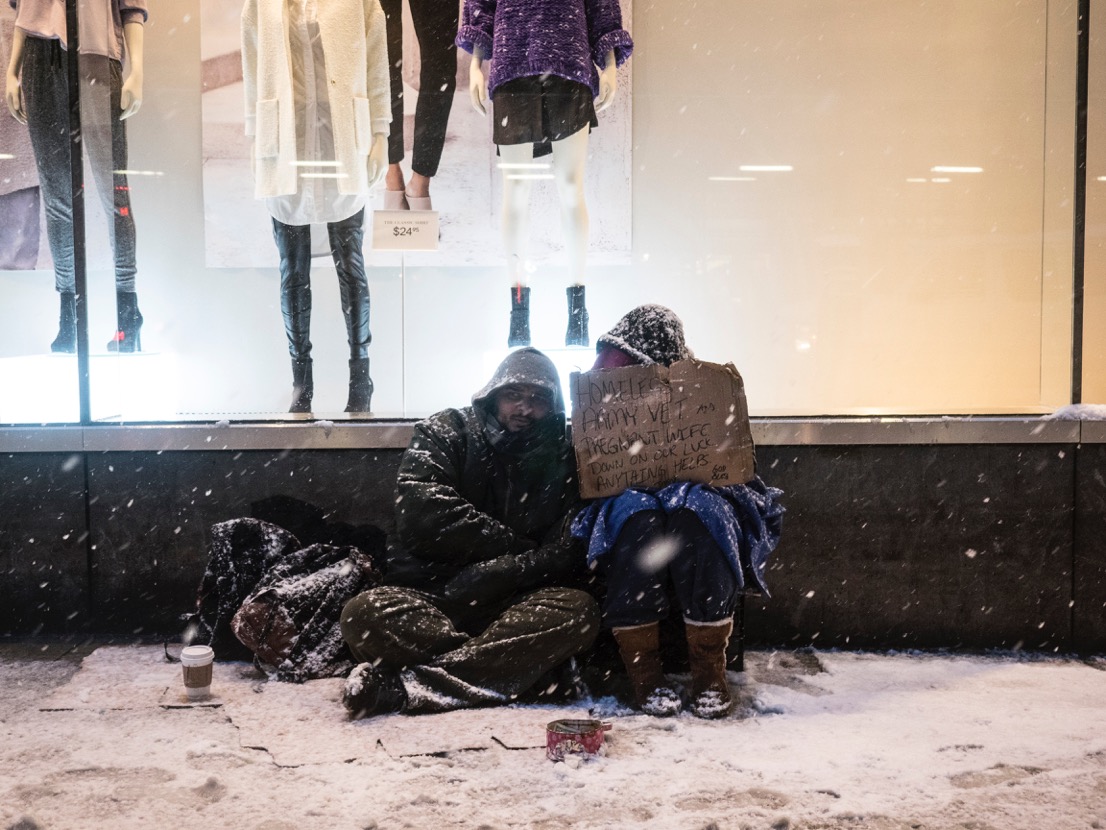
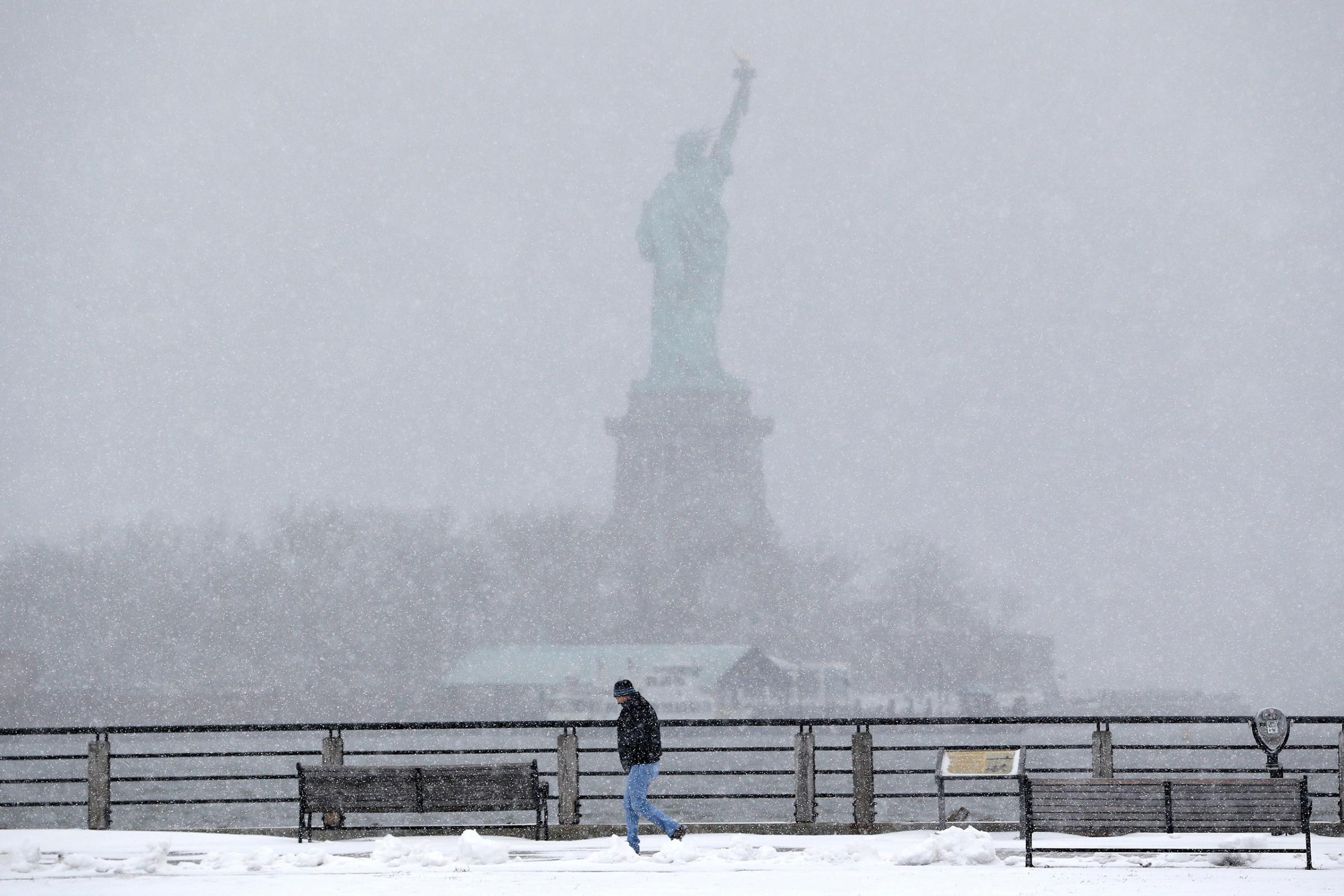
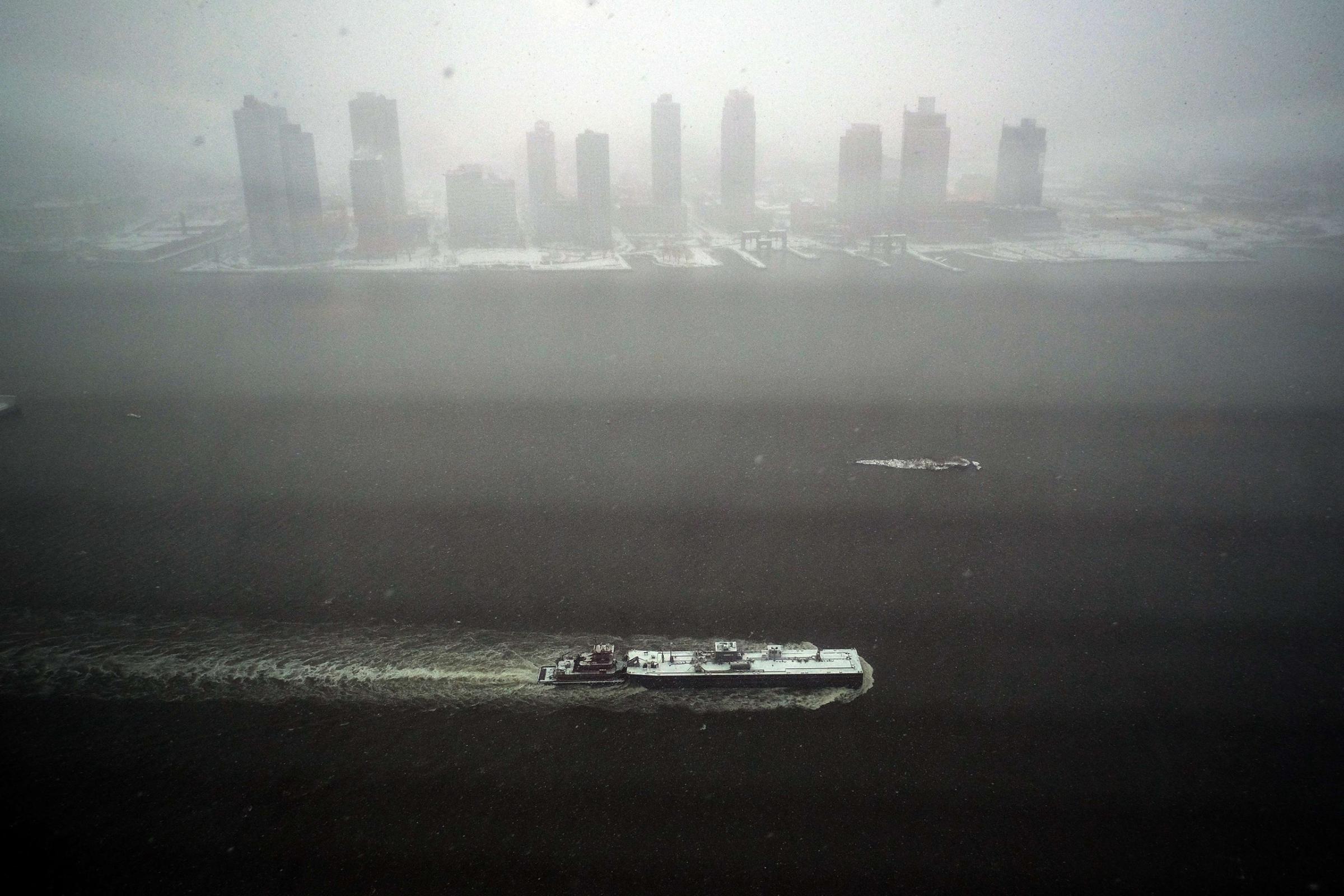
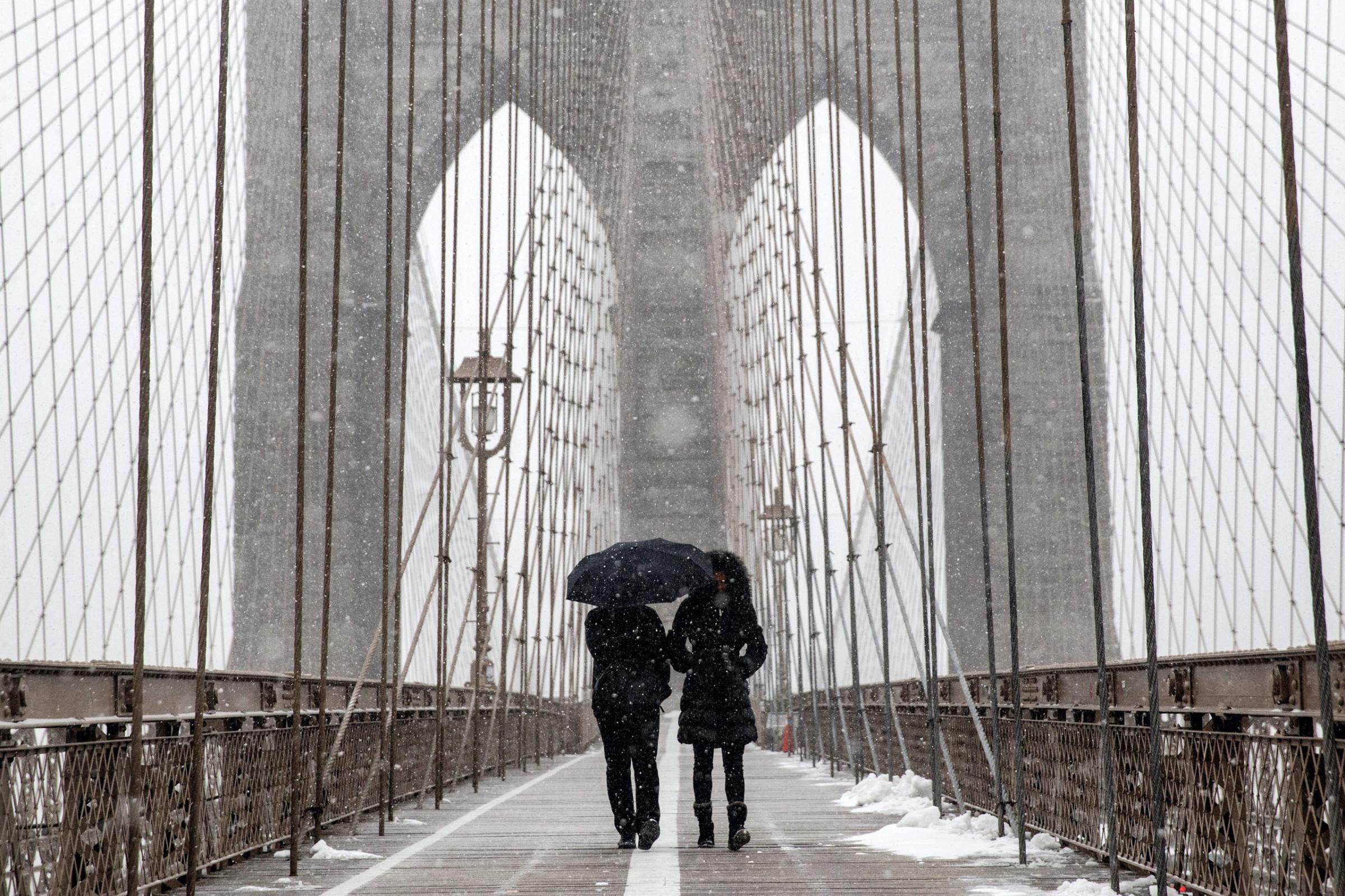
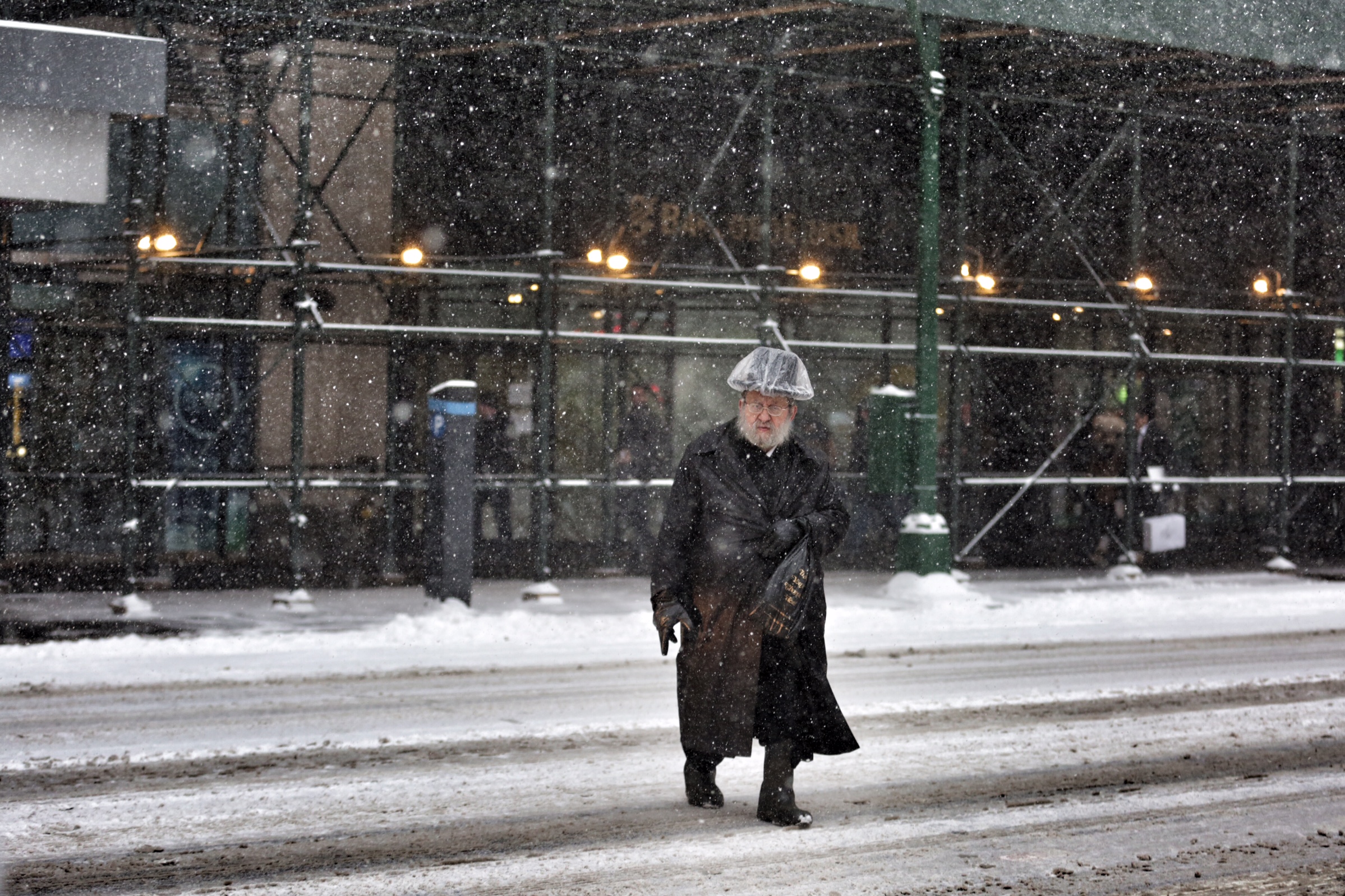
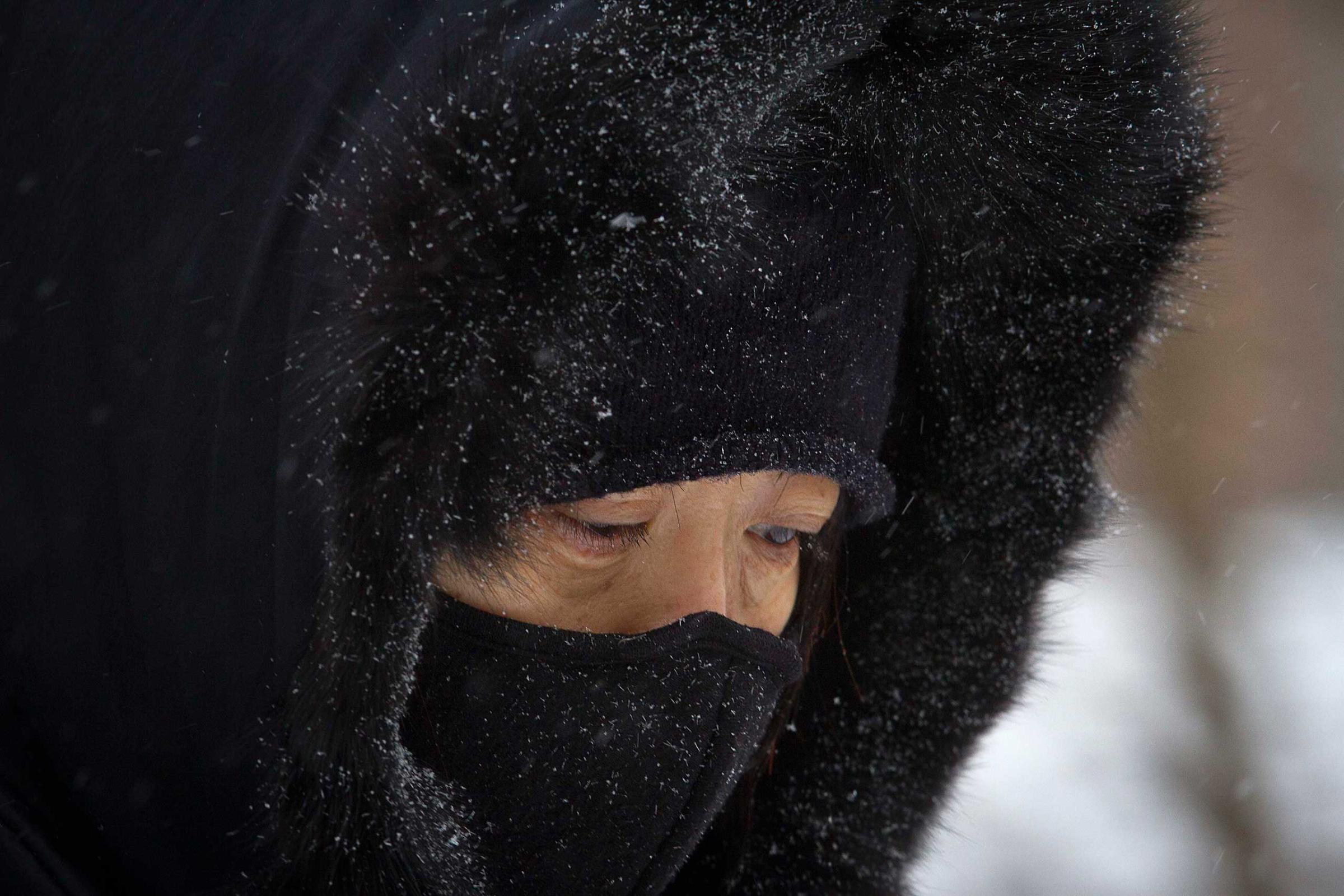
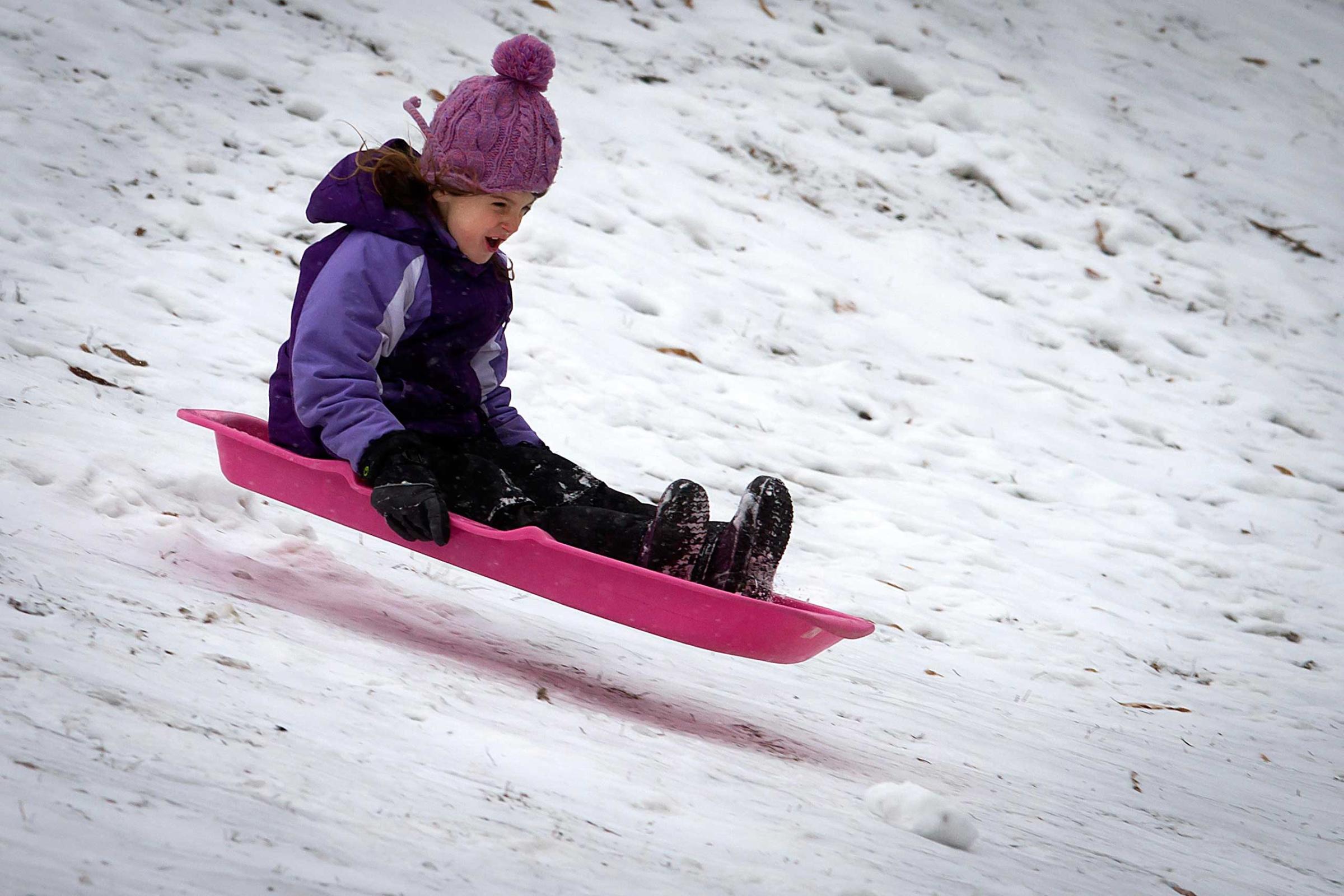
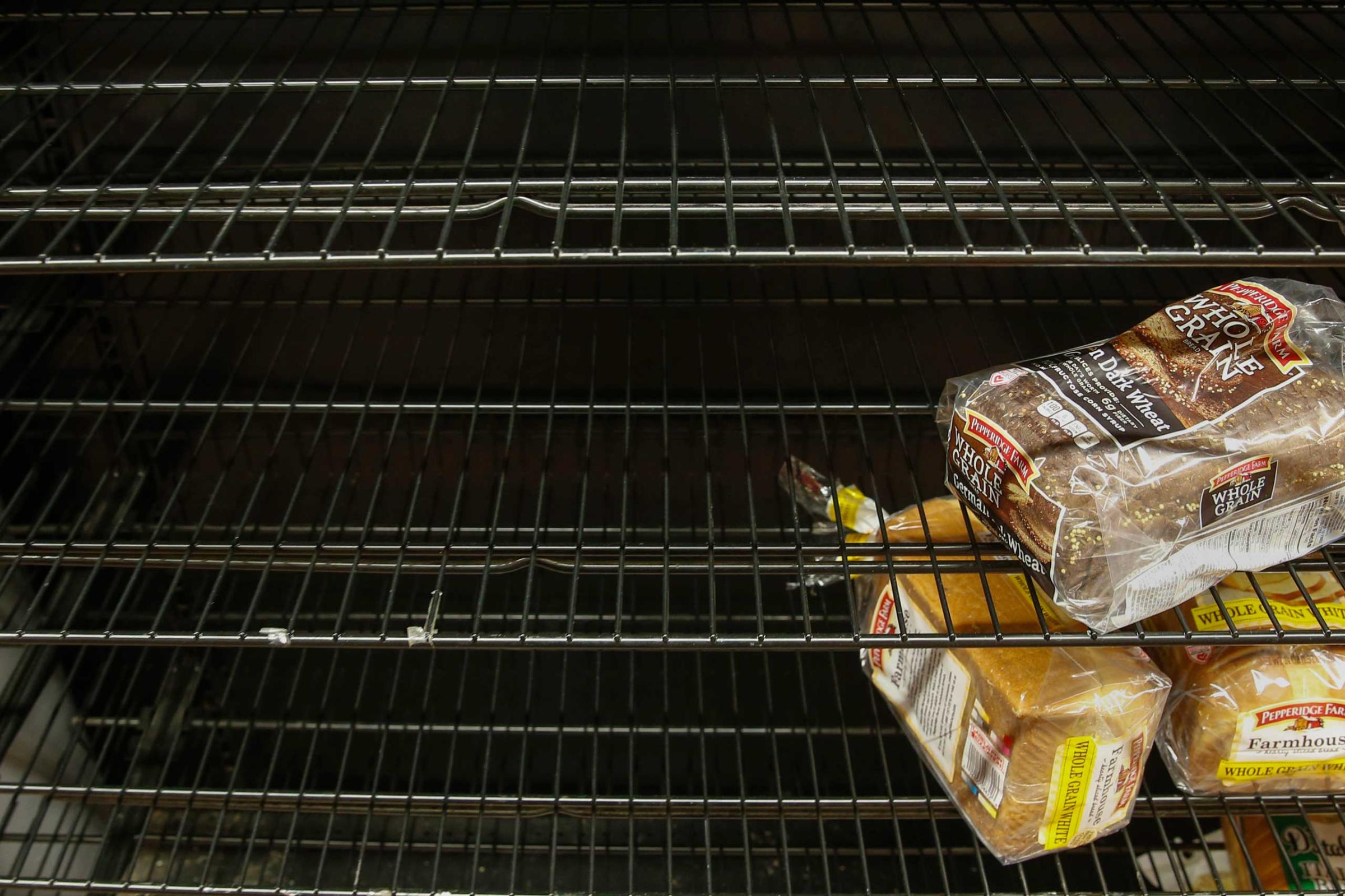
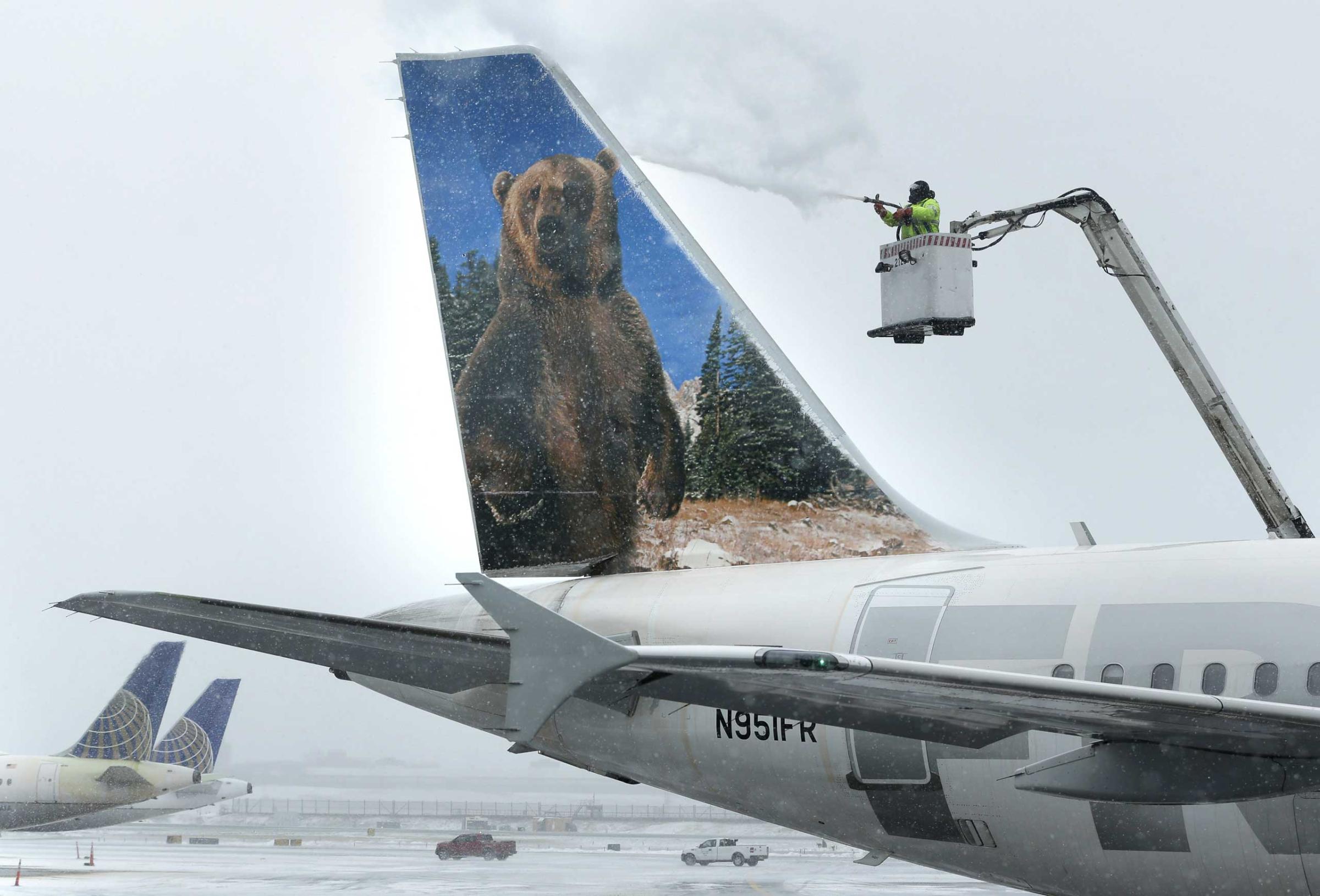
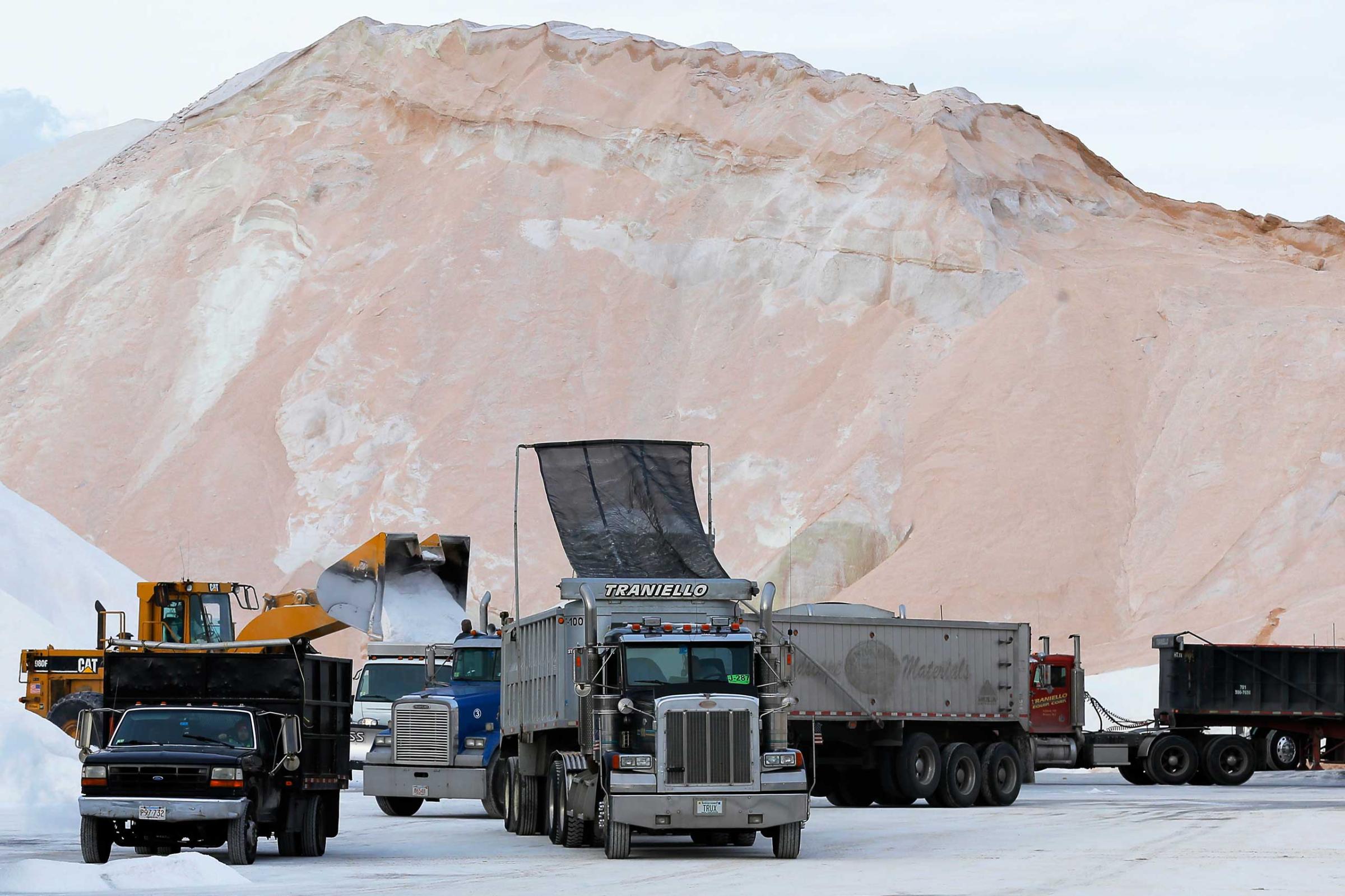
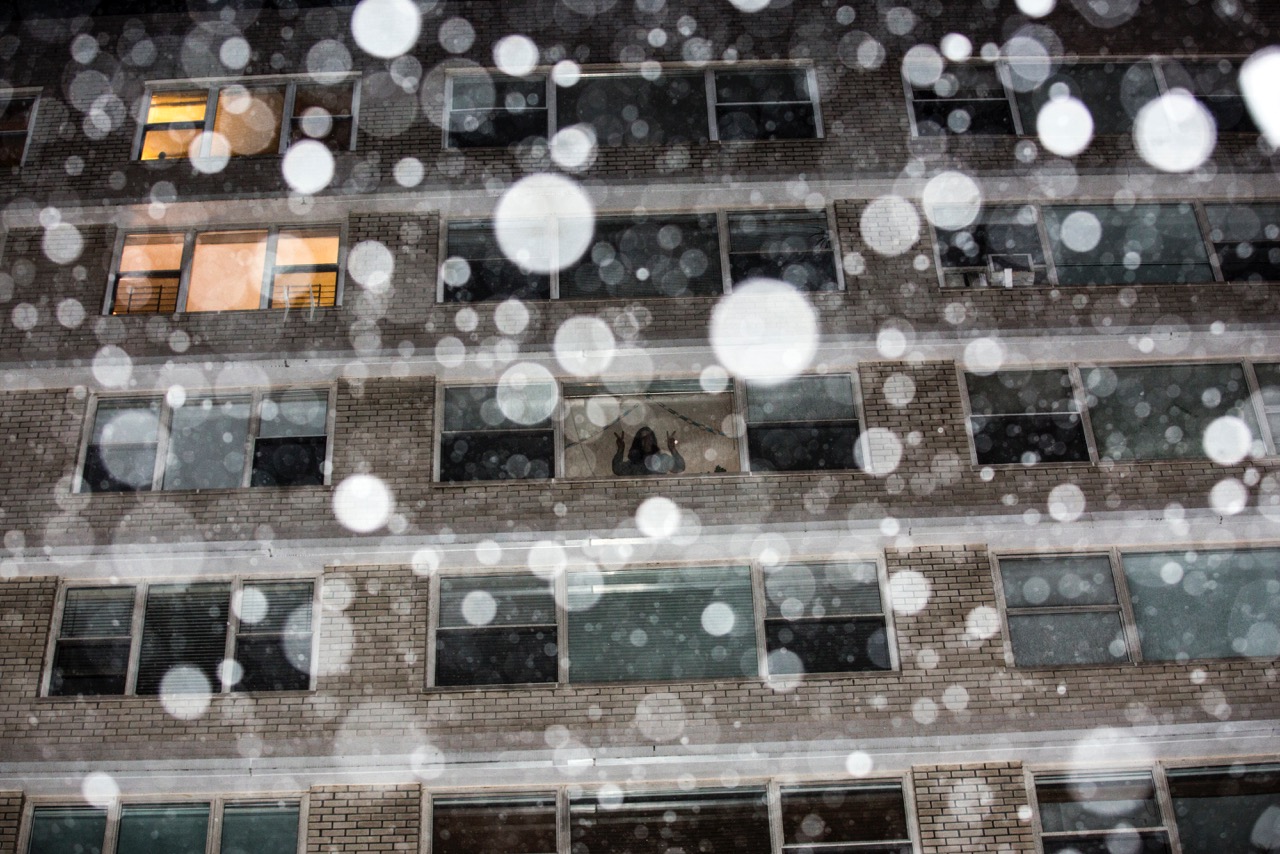
First of all, people seemed to think that a snow day was all about how much snow there was. Yes, sure, five feet of snow was a slam dunk. But if there was one foot, these things called snowplows turned out to be very handy, and business might well proceed as usual.
On the other hand, there could be an extremely light snowfall which, if it got warmer and then colder, could melt and then turn to ice. And then of course there were the various textures and stickability of snow and shifting temperatures, which meant roads that were entirely safe in the morning could turn bad in the afternoon.
Finally, there was the fact that the decision wasn’t really my father’s to make. In truth, it was all really up to a guy named Don, who was the head of the Department of Public Works. Although it was my father who technically called off school, his decision was pretty much all about what Don said. That wasn’t just because my father thought Don was awesome. It was because in this situation, doing what Don said was just his job. It was not his job to just do whatever he wanted. And of course sometimes Don was “wrong” — who can totally predict the weather? — and my father would take the hit because that was also his job. (Actually, Don may well have taken abuse, too. I never met him. He was an important figure, but a shadowy one.)
Like everyone else, big weather events make me think about hot cocoa and marathon television watching, which, thankfully, is a more high-quality experience than it once was. But I also think about the workers who have to make decisions about what roads and bridges and institutions will stay closed and which will be open, and who stand out in the cold at mountain passes telling drivers to put chains on their tires. And I know that those people will get a lot of crap from other people who themselves would hate to take on the responsibility for making these decisions and enforcing these rules.
I’m not saying that all snow storms are handled well and that we should just trust in authority figures because they always know what they’re doing. That would be idiocy. But if you should find yourself wanting to post on Facebook that you’re mad because school was or wasn’t cancelled by some dummy or that how can so and so road be closed because you need it to get somewhere, maybe think about the fact that it’s someone’s job to make those decisions, that they’re not easy to make. Also be aware that these decisions are made by people whose names you don’t necessarily know, and that knowing someone’s name doesn’t mean they’re the right person to be mad at.
Something else to take into consideration: Government officials aren’t perfect, but at least they don’t multiply their salaries by 2.8 every time it snows. Also, don’t ever take anything out on anyone’s child, because they’ll just turn into a writer someday, and make fun of you in print, and even if they don’t mention your name, you might recognize yourself and feel guilty.
More Must-Reads from TIME
- Donald Trump Is TIME's 2024 Person of the Year
- Why We Chose Trump as Person of the Year
- Is Intermittent Fasting Good or Bad for You?
- The 100 Must-Read Books of 2024
- The 20 Best Christmas TV Episodes
- Column: If Optimism Feels Ridiculous Now, Try Hope
- The Future of Climate Action Is Trade Policy
- Merle Bombardieri Is Helping People Make the Baby Decision
Contact us at letters@time.com